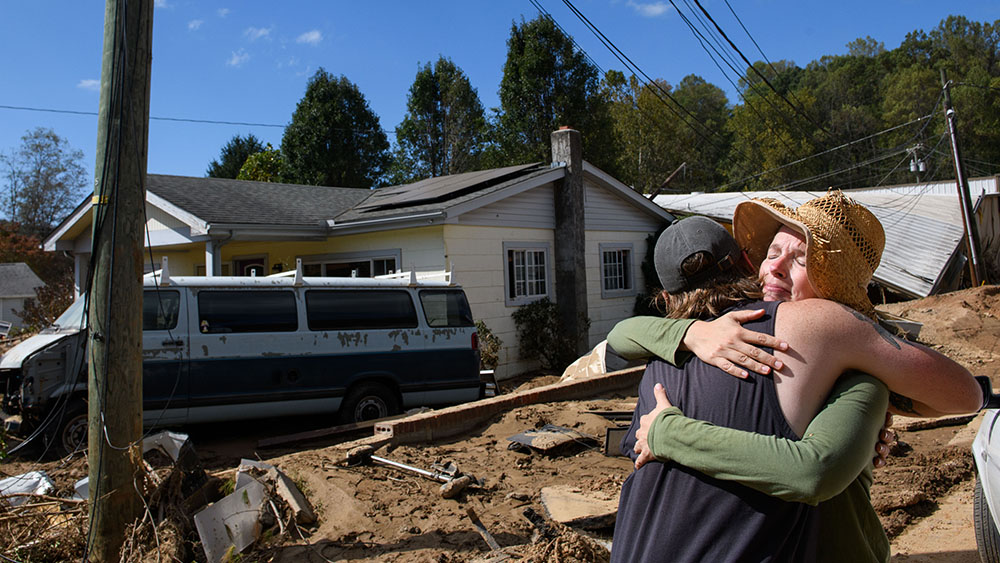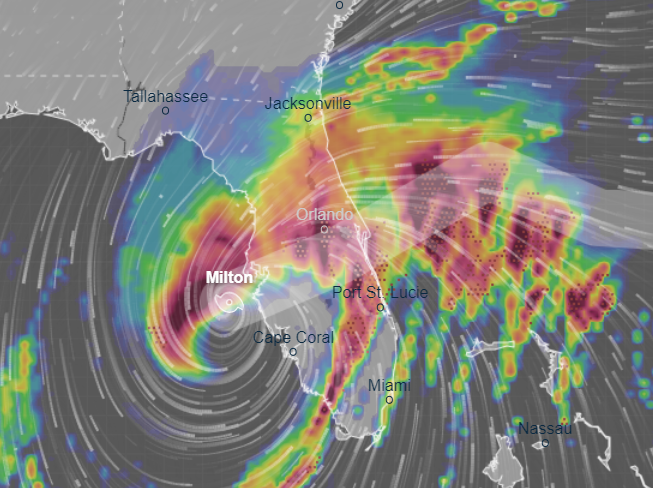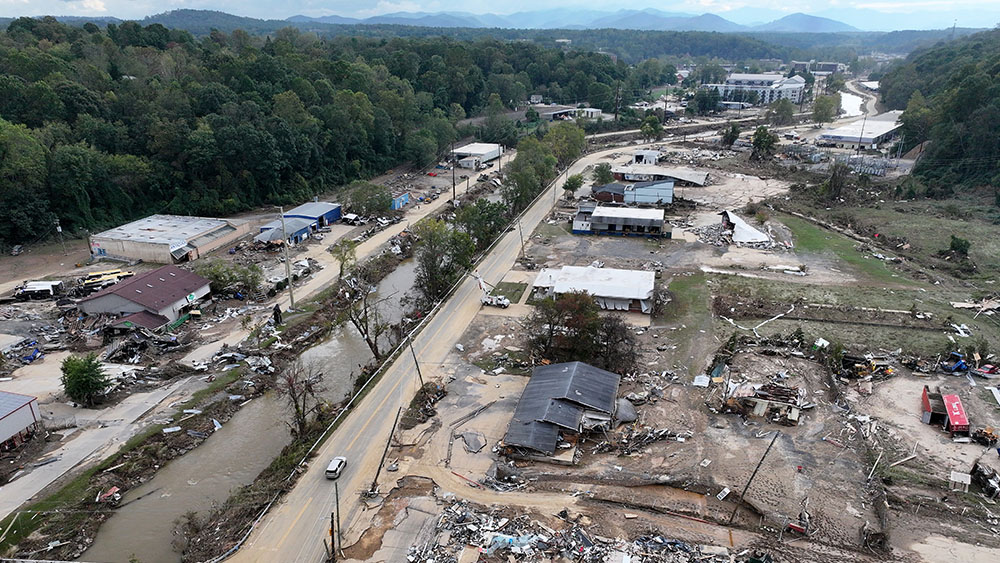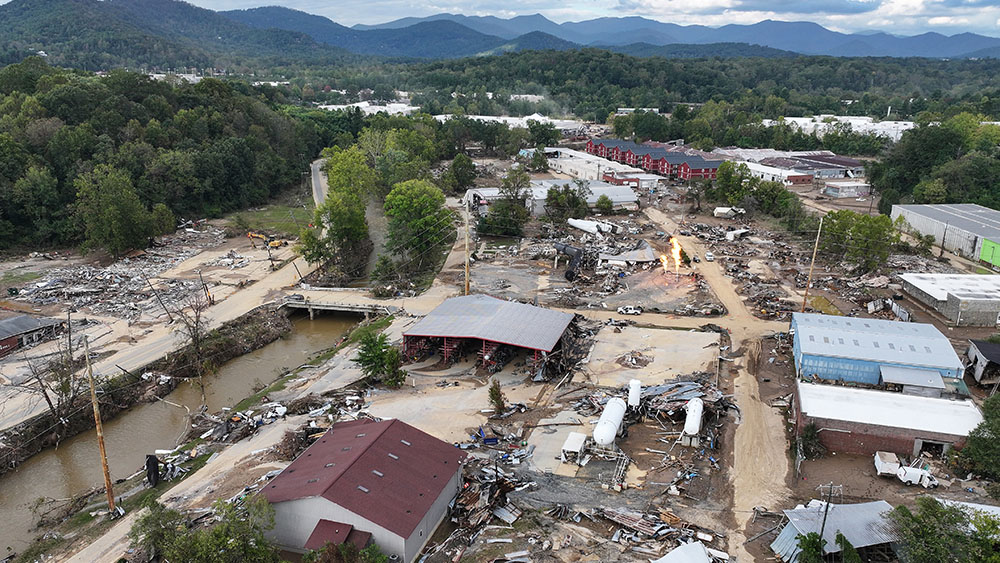Duke Energy Carolinas: Thousands remain without power in western parts of North and South Carolina
10/08/2024 / By Arsenio Toledo

Duke Energy Carolinas reported that as of 11:10 a.m. on Monday, Oct. 7, more than 106,000 outages were located in North Carolina and over 25,700 in South Carolina. Most of the outages were in the western regions of the states, which were hit the hardest by Hurricane Helene last week.
Power was initially expected to be restored to nearly all customers by the end of Friday, Oct. 4. However, that estimate changed to Wednesday, Oct. 8 for several counties.
On Oct. 2, Duke Energy reported approximately 370 substations in the Carolinas remained out of service. “For those that were damaged and can’t be repaired in a timely manner – mobile substations will be installed to allow us to restore service as soon as it is safe to do so,” Duke Energy posted on X. (Related: Southern communities hit by Hurricane Helene told to expect extended power outages after Biden sends critical electrical equipment to Ukraine instead.)
“With water levels coming down, we are starting to see some of this damage,” said Duke Energy Carolinas Bill Norton. “We had entire substations that were underwater.”
On Oct. 3, nearly a million people in Georgia and the Carolinas were still without power. Getting power infrastructure back up and running was made even more difficult by the ongoing shortages of transformers and other grid components.
“This is devastating. We do not have 370 substations worth of transformers and other electrical equipment sitting in stockpiles waiting to be deployed,” said Princeton University assistant professor and expert on energy systems engineering and policy Jesse D. Jenkins. “It could take a very long time to restore power to everyone.”
“Are we facing a Hurricane Maria-type impact on grid infrastructure?” added Jenkins, referencing the hurricane that devastated Puerto Rico so much that it took nearly a year to restore power to almost the entire island.
Duke Energy substation in Asheville surrounded by rubble
Duke Energy Carolinas representatives brought members of the media on one of its substations in Asheville, North Carolina, to emphasize the devastation the hurricane has wrought on Western North Carolina.
The substation, located in the middle of Asheville, is responsible for providing power to customers in the Biltmore Village neighborhood of the city. Reports indicate that the substation is surrounded by rubble.
“We’ve never had anything like this. Never. I’ve talked with guys who have been 40, 50 years in this field, each one of them says never before,” said Norton.
Norton added that the damage to the permanent substation is so bad that Duke Energy Carolinas will have to tear down the substation and rebuild it, a process that could take three or four months, at least.
To make up for this loss of power, the company will be installing a critical but temporary mobile substation that will provide power to nearly 7,000 customers in the surrounding area.
Read more stories like this at PowerGrid.news.
Watch this episode of the “Hagmann Report” as independent investigator Doug Hagmann warns that corporations may start land grabbing in Asheville, as companies attempt to exploit the desperation of the city’s residents.
This video is from the BoarOn Magazine channel on Brighteon.com.
More related stories:
Scenic North Carolina town wiped out by Hurricane Helene as state’s death toll continues to climb.
Sources include:
Submit a correction >>
Tagged Under:
chaos, Collapse, disaster, Duke Energy, electricity, grid collapse, grid down, Hurricane Helene, Hurricanes, natural disasters, North Carolina, power, power grid, south carolina, Western North Carolina
This article may contain statements that reflect the opinion of the author
RECENT NEWS & ARTICLES
COPYRIGHT © 2018 PANIC.NEWS
All content posted on this site is protected under Free Speech. Panic.news is not responsible for content written by contributing authors. The information on this site is provided for educational and entertainment purposes only. It is not intended as a substitute for professional advice of any kind. Panic.news assumes no responsibility for the use or misuse of this material. All trademarks, registered trademarks and service marks mentioned on this site are the property of their respective owners.




















